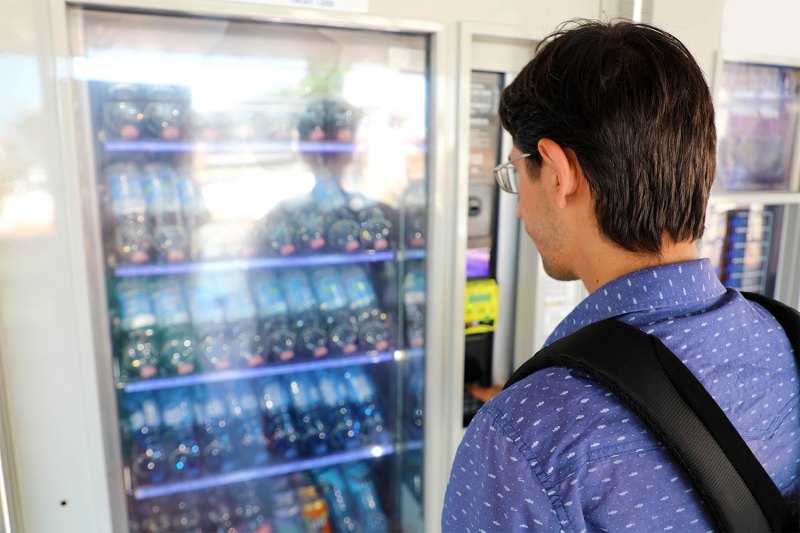As we continue to navigate the new customs and etiquette associated with pandemic life, some unlikely things are on the comeback.
Retro concepts like drive-in movie theaters are offering much-needed entertainment and healthy distancing. Imbibers are assembling at-home bars that remind of their favorite watering holes, whipping up carefree cocktails redolent of another era. Even vending machines are finding clever ways back to the fore.
It’s easy to forget that the vending machine is actually a fairly old invention. Devised in London in the 1880s, its original objective was to vend post cards. Miraculously, simpler versions of the contraption go all the way back to Roman Egypt, when coins were used to retrieve holy water in what must have seemed like a magical feat of engineering at the time.
The modern vending machine proved popular, offering a newfound element of convenience at popular street corners and train stops. Germany soon followed England’s lead and expanded the offerings of the machine to chocolate. Cigarettes, soap, gum, and more soon filled the racks of the increasingly popular invention. By 1888, America had its first homegrown vending machine, set up in bustling New York.

These days, we associate the vending machine with a quick and easy way to get our paws on a soft drink, bag of chips, or candy bar. But all over the world, these machines offer everything from train tickets and pizza to live fishing bait and grave candles. Most recently, as we’ve pushed to create food experiences with less contact in the name of public health, the vending machine has assumed another role.
In Portland, where restaurants shifting like mad to outdoor, delivery, and takeout models, one outfit opted for the vending machine route. Longstanding dessert hot spot Pix Pâtisserie migrated to the person-less format. Owner Cheryl Wakerhauser is now stocking a vending machine called the Pix-O-Matic with her beloved sweet treats like fresh macaroons, boxes of chocolates, sourdough starters, and items like the Amelie, made from orange vanilla crème brûlée, chocolate mousse, caramelized hazelnuts, praline crisp, and Cointreau genoise. It’s an idea she has always had but never implemented until the pandemic broke. There’s even a happy hour for night owls to satisfy a sweet tooth, during hours most places are long closed (midnight to 4 a.m.).
Meant to be an experience (and a diversion), the machine rests under a disco ball in the company of a special pandemic playlist of music. Goods from other area purveyors are available, too, like conservas, fresh eggs, Ruth Bader Ginsberg face masks, and even toilet paper. It’s open 24-7 and has been a hit since launching earlier this summer. A second machine has been added and Wakerhauser is netting more profit that she did even when her popular restaurant was running.
Vending machine chains have come about and adapted to the current climate as well. Names like Farmer’s Fridge, which has machines all over the country. While sales have halted in normally popular places like airports, they’ve increased at places like hospitals, where staff are looking for quick and healthy options that adhere to social distancing standards. Eater estimated that in April, the company was providing more than 30,000 meals a week to the exhausted health care sector.
Will other restaurants and food outfits follow suit? Time will tell. We may never have anything quite like this Japanese concept (a 24-hour automat diner), but the vending machine is certainly riding a new wave of momentum as the pandemic wears on.


